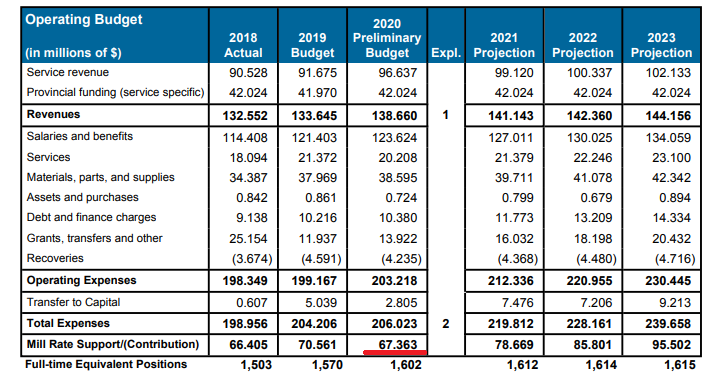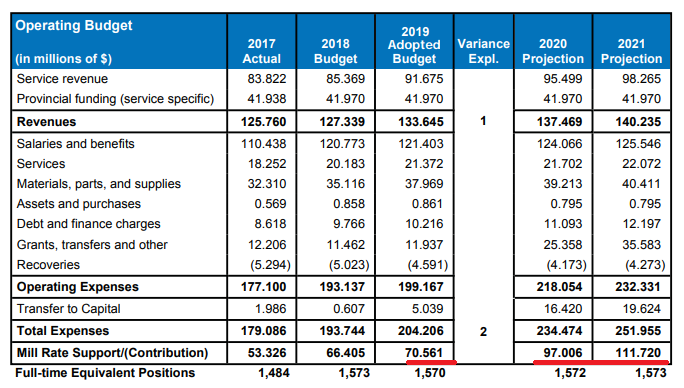On Friday, City Hall put forward its 4-year preliminary transit budget. Decision-makers are challenging claims this budget contains cuts and arguing there is a funding increase. This budget actually contains a $3.2 million operating funding cut for 2020 and the argument that there is a funding increase is based on projections for future years, which Winnipeggers should not feel confident about given the city’s previous record on projected budgets.
There are three sources of revenue for Winnipeg Transit:
- Service Revenue (fares and other user fees)
- Provincial funding
- Mill Rate Support (city funding)
Here is the 2020 budget (this year’s Mill Rate Support underlined in red):

Notice that it’s $3.2 million lower than the $70.561 million contributed in 2019.
So how can it be argued that funding is increasing? It’s because the projections for future years show funding increasing. The city is making a cut this year, but promising to add more next year. But Winnipeggers should be very skeptical about promises for future years while cuts take place in the current year, especially given the city’s track record for following through on projected increases, as we’ll illustrate below.
While this year has been spoken about as the city’s first 4-year budget, the city has always had projections. In the 2019 budget, the city projected spending $97 million in 2020. You can see that below.
Here is the 2019 budget:

So not only is the city now reducing funding for 2020 COMPARED to last year, they are coming in way below what was promised last year:
- In 2019, they projected $97mil for transit in 2020
- In this week’s budget release, they are providing only $67.3mil in 2020
- In 2019, they projected $111.7mil for transit in 2021
- In this week’s budget release, they are projecting only $78.7mil for 2021
Decision-makers are asking Winnipeggers to trust that over the subsequent three years (2021, 2022 and 2023) funding increases will offset a decrease this year. But history shows there is no guarantee the city will honour these projections.
Winnipeggers asked for funding for the 10-minute frequent service network. The city can allocate funding for service this year. Instead they are reducing mill rate support by $3.2 million.